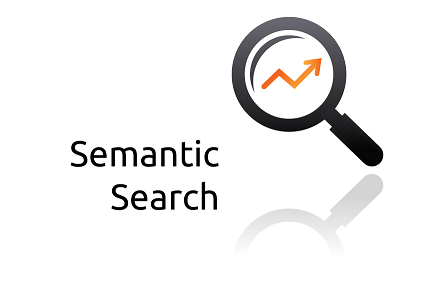Everything about Web and Network Monitoring
by Ralph Eck | Oct 25, 2013
 “Semantic search” is perhaps the one of biggest buzzwords in technology right now. It is defined as the technology that understands the user’s intent and delivers search results on a contextual basis. A good example of a modern semantic search engine is Google’s Knowledge Graph.
“Semantic search” is perhaps the one of biggest buzzwords in technology right now. It is defined as the technology that understands the user’s intent and delivers search results on a contextual basis. A good example of a modern semantic search engine is Google’s Knowledge Graph.
Prior to this, results were solely based on text and keywords, with the engines parsing search queries through a dictionary. Times have changed now and search engines are becoming a lot smarter and accurate, incorporating the use of artificial intelligence.
In this article, we will look at what semantic search is and how you can optimize your website to get yourself ready for the latest breakthrough in search technology.
What is the Knowledge Graph?
Keywords are easier to manipulate, intent isn’t. That’s the goal of Google’s baby, the Knowledge Graph, to learn user intent. With this piece of technology, search becomes more semantic, pertaining to ‘meaning’. Semantic search allows you to know what you really want and gives you answers instantly.
For example, semantic search algorithms in Google (e.g. Knowledge Graph) function around a relationship of objects, hence the name ‘graph’. The picture below shows how Google delivers results based on a query “Kate Winslet”. This is a great example of semantic search at work.
You get your answers even before you know you wanted them. The results show the actress’ bio-data, photographs, movies she has filmed and a lot more. Google compiles data from multiple sources to give you a result that saves your time and is more relevant to what you want! This is why analysts say; we are in an age of context. You don’t want to be pointed to links that talk about Kate Winslet, but rather know there and then everything about her.
During the Kate Winslet search query, the Knowledge Graph is populated through deep Learning (essentially via machine intelligence/machine learning) that is overseen by human subjects. The related search algorithms look at all the data Google gathers across the globe that maps human behavior in terms of specific search queries so if a Kate Winslet search then leads to a Titanic, the history of search this will also come up. These two together make up the semantic search you see on Google’s search box. Quite extra ordinary isn’t it?
Semantic Search is about context
Semantic search takes into consideration multiple factors to deliver recommendations based on user intent, context and meaning. All of this really defines what semantics is all about. For example, searching for a “Pizza Hut” from a desktop computer would give you details about Pizza Hut, the company, its website, the Wikipedia article and other related links.
But searching for the same query on a mobile device (with GPS) would give you a list of all the Pizza Hut restaurants nearest to your location. Here, semantic search understands the users intent by factors such as location and device type. Semantic search, as remarked by Tim Berners Lee (WWW Inventor), “is a simple concept, having been unrealized for a long time”.
In this picture below, you see how Google knows that ‘tall’ means ‘height’. This is pure semantics, diving in deep within the user’s intent to understand what he/she means. To create such technology requires interpreting ‘Empire State Building’ as a single object, then figuring out what the user want’s to know about that object and finally, sift through millions of records to deliver an answer in milliseconds.
Please watch for the next article in this series.
Category: Website Performance | Tagged 2 Comments.









